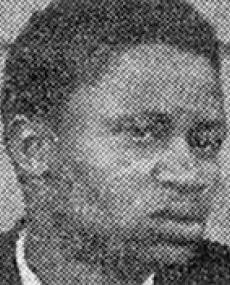
Isaac Bokala was born in 1929 in Newclare, Johannesburg. Bokala qualified as a teacher at the Wilberforce Institute, and in 1950 he began working at Total, the petrol company, in the same year that he joined the ANC Youth League.
In 1952 Bokala married Margaret, with whom he had eight children. Later, during the 1950s the family was forcibly moved from Newclare to Naledi in Soweto.
Bokala was active in African National Congress campaigns from the 1952 Defiance Campaign, and on 5 December 1956, Bokala was one of many that were arrested at dawn for treason. He was reunited with his family on 21 December 1956 after he was released on bail of 50 pounds.
In January 1958, charges were withdrawn against Bokala and 64 of his fellow accused in the Treason Trial, and therefore free to go home. However, later that decade, following the “Stay at Home” campaign in 1959, he was arrested and charged for being a member of a banned organisation. He was imprisoned for six months.
Upon his release from prison he was banned and placed under house arrest for five years, and forced to eke out a living from running a stall in Soweto.
In 1960 following the Sharpeville massacre, Bokala was detained for five months during the state of emergency that was imposed.
With the formation of the United Democratic Front (UDF) in 1983, Bokala, a founder member, become a regional organiser for the Naledi area. He was also the chairperson of the South African Civic Organisation.
Isaac Bokala died on 24 April 2005.